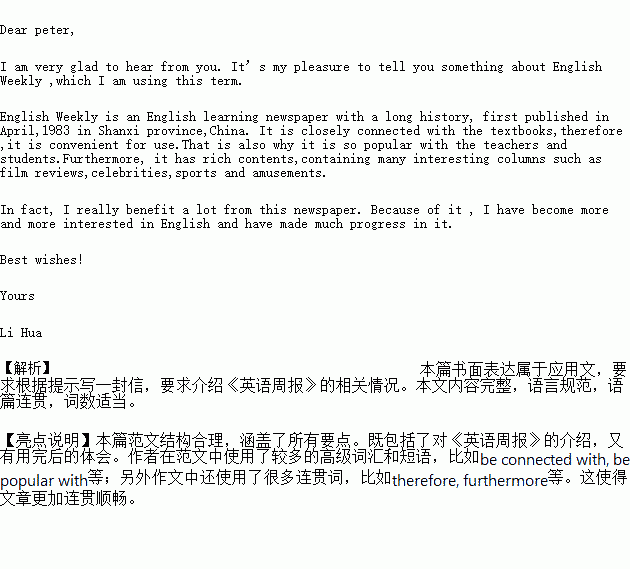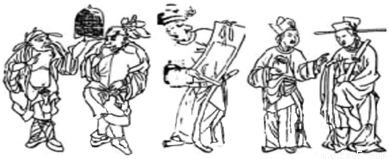ĢāÄæÄŚČŻ
¼ŁÉčÄćŹĒĄī»Ŗ£¬ÄćµÄŅ»øöÓ¢Óļ±ŹÓŃ£¬¼ÓÄĆ“óµÄ֊ѧɜPeterĄ“ŠÅŃÆĪŹÄćÕżŌŚŌĶĮŹ²Ć“Ó¢Óļ±ØæÆ£¬Ē”ŗĆÕāѧʌÄ涩ŌÄĮĖ”¶Ó¢ÓļÖܱؔ·£ØEnglish Weekly£©”£Ēė¾ĶŅŌĻĀŠÅĻ¢ÓĆÓ¢ÓļŠ“Ņ»·ā»ŲŠÅ£¬ĻņĖū½éÉÜĻą¹ŲĒéæö”£
1. ”¶Ó¢ÓļÖܱؔ·ĄśŹ·ÓĘ¾Ć£¬ÓŚ1983Äź4ŌĀŌŚÖŠ¹śÉ½Ī÷Ź”““æÆ£»
2. øƱØÓė½Ģ²ÄĮŖĻµ½ōĆÜ£¬Ź¹ÓĆ·½±ć£¬ŗÜŹÜ¹ć“óŹ¦Éś»¶Ó£»
3. ÄŚČŻ·įø»£ŗæŖ±ŁÓŠµēÓ°ĘĄĀŪ”¢ĆūČĖéóŹĀ”¢ŌĖ¶ÆÓéĄÖµČ×ØĄø”£
4. ŅņĪŖĖü£¬Äć¶ŌÓ¢ÓļøüøŠŠĖȤĮĖ£¬Ņ²Č”µĆĮĖŗÜ“ó½ų²½”£
×¢Ņā£ŗ1. “ŹŹż100×óÓŅ£»
2. æÉŹŹµ±Ōö¼ÓĻø½Ś£¬ŅŌŹ¹ŠŠĪÄĮ¬¹į£»
3. ²Ī漓Ź»ć£ŗ×ØĄø£ŗcolumn ½Ģ²Ä: textbook
Dear Peter,
IӮm very glad to hear from you.
_____________________________________________________________________________
Į·Ļ°²įĻµĮŠ“š°ø
 ĢģĢģĻņÉĻŅ»±¾ŗĆ¾ķĻµĮŠ“š°ø
ĢģĢģĻņÉĻŅ»±¾ŗĆ¾ķĻµĮŠ“š°ø Š”ѧɜ10·ÖÖÓÓ¦ÓĆĢāĻµĮŠ“š°ø
Š”ѧɜ10·ÖÖÓÓ¦ÓĆĢāĻµĮŠ“š°ø
Ļą¹ŲĢāÄæ


